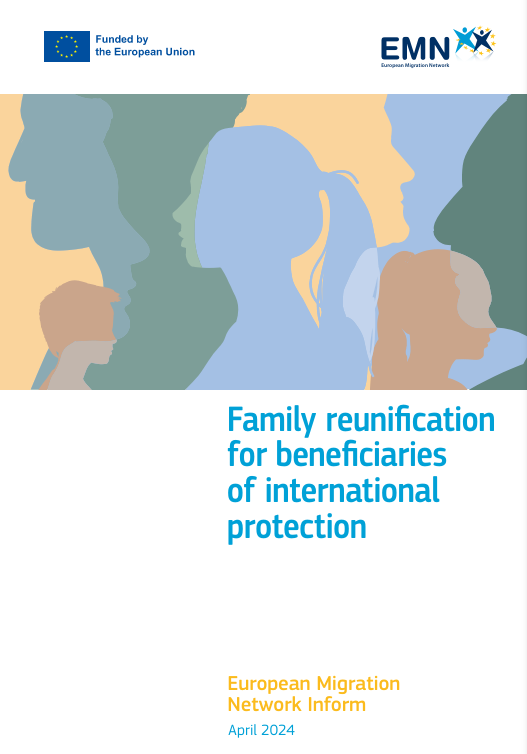Family reunification plays a critical role in the successful integration of migrants and refugees in a new country. Additionally, family reunification schemes in the context of international protection extend protection to family members in potentially vulnerable circumstances. Following the 20th anniversary of the Family Reunification Directive, this latest EMN Inform compares national legislation, policies and practices on family reunification between EMN Member and Observer Countries.
The application process and documentary evidence
Eligible family members are specified in national legislation and exact definitions vary across EMN Member and Observer Countries. Proof of pre-existing family ties between the sponsor and the family member is the main type of documentary proof required. In the absence of official documents that evidence family relationships, other types of evidence may be accepted, or further investigations may be carried out such as interviews. DNA testing is used by some countries as a last resort.
Family reunification with or for children coming of age
Some countries allow children to retain the right to family reunification if they come of age during the examination of their sponsoring parent’s application, within a certain period after being granted the protection status. In other countries however, the application for family reunification can only be lodged after a person has been granted refugee status, as the right to be reunited with family is only granted to recognised refugees. Therefore, if children come of age during the examination of their sponsoring parent’s application, they will not be eligible.
Family reunification for beneficiaries of international protection in Ireland
While Ireland does not participate in the Family Reunification Directive, family reunification is permitted under the International Protection Act 2015 (Section 56 (9)). Beneficiaries of subsidiary protection are entitled to family reunification in the same way as refugees. Applications must be made within 12 months of receiving protection status. If this deadline passes or if the beneficiary wishes to apply for family members not eligible under the International Protection Act 2015, they can apply for family reunification under the non-EEA family reunification policy, however all relevant requirements must be met e.g. financial requirements.
Where the child of a parent sponsor turns 18 during the parent sponsor’s international protection procedure, the child is no longer eligible for family reunification under the International Protection Act 2015. The sponsor can apply for family reunification under the general non-EEA family reunification policy. Minors are only eligible to apply for family reunification with their parents and their parents’ children when they are below the age of 18. A discretionary aged-out minor policy is in place in Ireland and applicants may be accepted as minors for the purposes of family reunification if they are unmarried.
Latest Eurostat data shows that 101 first residence permits were issued for family reunification with a beneficiary of a protection status in 2022 with a total of 222 valid permits at the end of 2022. A recent parliamentary question showed that in 2023, 820 applicants applied for 2,330 family members and by 31 December 2023, 932 applications were awaiting a decision. The average processing time for decisions was reported to be 12 months.
Challenges faced by beneficiaries of international protection in Ireland regarding family reunification, identified in previous EMN Ireland research, include the restricted definition of ‘family’ in order to be eligible for reunification, delays in the international protection process inhibiting access to family reunification for aged out minors, as well as long processing delays.
See more
- Family Reunification of Beneficiaries of International Protection (EMN Inform)
- Annual Report on Migration and Asylum 2022: Ireland
- Policy Document on non EEA Family Reunification
- Family Reunification of non EEA Nationals in Ireland (EMN Ireland, 2017)
- Family Reunification of Third-Country Nationals in the EU plus Norway: EMN Synthesis report 2017


